Enjoy the Same Liberty
The African American History Series
Series Editors:
Jacqueline M. Moore, Austin College
Nina Mjagkij, Ball State University
Traditionally, history books tend to fall into two categories: books academics write for each other, and books written for popular audiences. Historians often claim that many of the popular authors do not have the proper training to interpret and evaluate the historical evidence. Yet, popular audiences complain that most historical monographs are inaccessible because they are too narrow in scope or lack an engaging style. This series, which will take both chronological and thematic approaches to topics and individuals crucial to an understanding of the African American experience, is an attempt to address that problem. The books in this series, written in lively prose by established scholars, are aimed primarily at nonspecialists. They focus on topics in African American history that have broad significance and place them in their historical context. While presenting sophisticated interpretations based on primary sources and the latest scholarship, the authors tell their stories in a succinct manner, avoiding jargon and obscure language. They include selected documents that allow readers to judge the evidence for themselves and to evaluate the authors conclusions. Bridging the gap between popular and academic history, these books bring the African American story to life.
Volumes Published
Booker T. Washington, W.E.B. Du Bois, and the Struggle for Racial Uplift
Jacqueline M. Moore
Slavery in Colonial America, 16191776
Betty Wood
African Americans in the Jazz Age: A Decade of Struggle and Promise
Mark Robert Schneider
A. Philip Randolph: A Life in the Vanguard
Andrew E. Kersten
The African American Experience in Vietnam: Brothers in Arms
James Westheider
Bayard Rustin: American Dreamer
Jerald Podair
African Americans Confront Lynching: Strategies of Resistance
Christopher Waldrep
Lift Every Voice: The History of African-American Music
Burton W. Peretti
To Ask for an Equal Chance: African Americans in the Great Depression
Cheryl Lynn Greenberg
Loyalty in Time of Trial: The African American Experience During World War I
Nina Mjagkij
The African American Experience During World War II
Neil A. Wynn
Through the Storm, Through the Night: A History of African American Christianity
Paul Harvey
Enjoy the Same Liberty: Black Americans and the Revolutionary Era
Edward Countryman
Enjoy the Same Liberty
Black Americans and the Revolutionary Era
Edward Countryman
Rowman & Littlefield Publishers, inc.
Lanham Boulder New York Toronto Plymouth, UK
Published by Rowman & Littlefield Publishers, Inc.
A wholly owned subsidiary of The Rowman & Littlefield Publishing Group, Inc.
4501 Forbes Boulevard, Suite 200, Lanham, Maryland 20706
http://www.rowmanlittlefield.com
Estover Road, Plymouth PL6 7PY, United Kingdom
Copyright 2012 by Rowman & Littlefield Publishers, Inc.
All rights reserved . No part of this book may be reproduced in any form or by any electronic or mechanical means, including information storage and retrieval systems, without written permission from the publisher, except by a reviewer who may quote passages in a review.
British Library Cataloguing in Publication Information Available
Library of Congress Cataloging-in-Publication Data
Countryman, Edward.
Enjoy the same liberty : Black Americans and the revolutionary era / Edward
Countryman.
p. cm. (The African American history series)
Includes bibliographical references and index.
ISBN 978-1-4422-0028-9 (cloth : alk. paper) ISBN 978-1-4422-0029-6
(electronic)
1. United StatesHistoryRevolution, 1775-1783African Americans. 2. United
StatesHistoryRevolution, 1775-1783Social aspects. 3. SlaveryUnited
StatesHistory18th century. 4. Antislavery movementsUnited States
History18th century. 5. African AmericansHistoryTo 1863. I. Title.
E269.N3C68 2012
973.30896dc23
2011033236
 The paper used in this publication meets the minimum requirements of American National Standard for Information SciencesPermanence of Paper for Printed Library Materials, ANSI/NISO Z39.48-1992.
The paper used in this publication meets the minimum requirements of American National Standard for Information SciencesPermanence of Paper for Printed Library Materials, ANSI/NISO Z39.48-1992.
Printed in the United States of America
For My Mother-in-Law Lyn Mitchell,
One of the Finest People Ive Had the Privilege to Know
Has the GOD, who made the white man and the black left any record declaring us a different species? Are we not sustained by the same power, supported by the same food, hurt by the same wounds, wounded by the same wrongs, pleased with the same delights, and propagated by the same means? And should we not then enjoy the same liberty and be protected by the same laws?
A Man of Colour [James Forten], 1813

Preface
To most Americans, the revolutionary era of the late eighteenth century is a heroic time of great white men. George Washington, Thomas Jefferson, Benjamin Franklin, John Adams, James Madison, and their like dominate understanding of how the British colonies broke with Britain and turned themselves into the United States. Such mens achievements were enormous and they deserve the honor they receive. But they did not act alone. Every single human being, female and male, black, native, and white, urban and rural, rich and poor, patriot and loyalist, within the huge zone that became the young United States, took part one way or another in the transforming era that they all lived through. Living through it changed them, and, one way or another, they changed their lives and their world. Taken together, they transformed what might have been a mere break over the problem of belonging to Britain while living in America into something much larger. Those people included free white men of all sorts, the women with whom those men shared their lives, Native Americans, and the hundreds of thousands of black people who were held almost entirely in slavery at the point of independence. This short book explores what those black men and women did with the chances that their time gave to them.
During their time the institution of human slavery underwent enormous changes. As of the middle of the eighteenth century, slavery was age-old and almost world-wide. It existed throughout the colonized western hemisphere. By the end of the revolutionary era, its world-historical destruction was underway. It was gone or dying, not just in some parts of the United States, but in much of the rest of the Americas. It had turned from an ugly but unavoidable fact of life into a problem that would not go away. Communities of free black people were taking form in the United States and elsewhere around the Atlantic basin.
Those people achieved something remarkable. Seeking their own freedom, they also sought something much larger, the destruction of human slavery itself. In part, they achieved that goal. Without what those people did during the revolutionary era, human slavery might have continued unchallenged, not just in the United States, but throughout the Americas and probably around the world. They could not destroy slavery alone. They had allies, and even with their allies they could not have destroyed slavery outright. It was too ancient, too important, too profitable, for that. In the American South, slavery flourished rather than withered, leading to the attempt by the would-be Confederate States of America to create a separate republic based unapologetically on slavery. But the American revolutionary era marked the beginning of slaverys end. Enjoy the Same Liberty tries to tell the story of the important, necessary part that black people took during that enormous change in the course of human events.

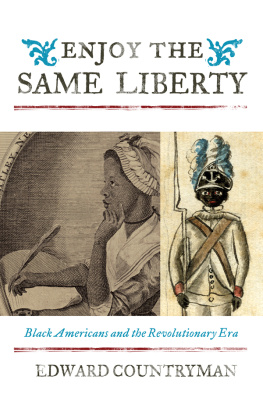

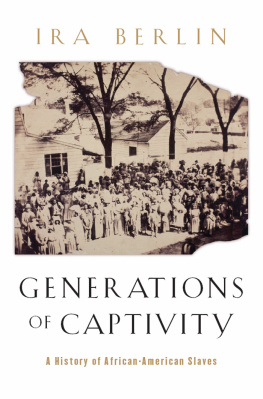

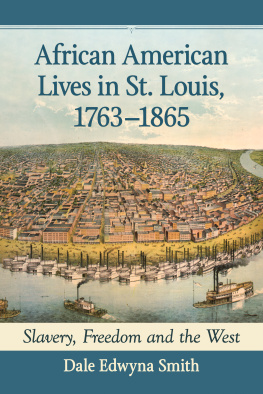

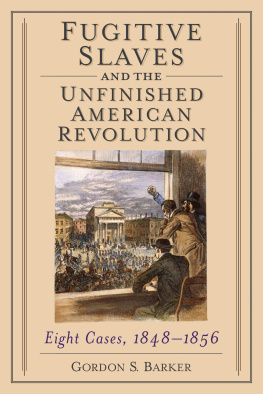


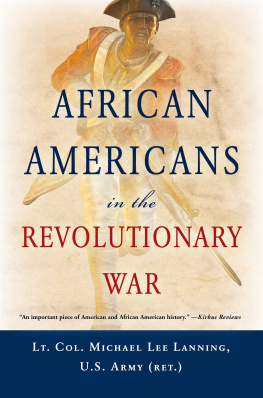

 The paper used in this publication meets the minimum requirements of American National Standard for Information SciencesPermanence of Paper for Printed Library Materials, ANSI/NISO Z39.48-1992.
The paper used in this publication meets the minimum requirements of American National Standard for Information SciencesPermanence of Paper for Printed Library Materials, ANSI/NISO Z39.48-1992.